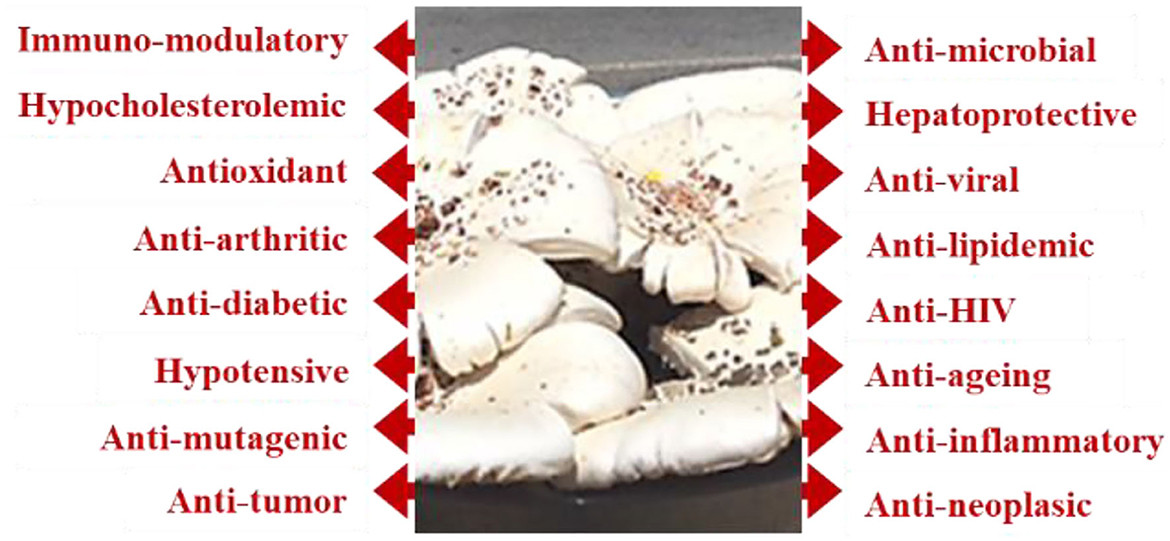
Title: New Research Uncovers Potential of Medicinal Mushrooms in Addressing CNS Disorders
In a thrilling advancement for both neuroscience and integrative medicine, the latest scientific findings indicate that edible and medicinal mushrooms might possess significant therapeutic properties for central nervous system (CNS) disorders. A thorough review featured in the Journal of Food Science delves into the potent bioactive substances present in mushrooms such as Lion’s Mane (Hericium erinaceus), Reishi (Ganoderma lucidum), and Cordyceps (Cordyceps spp.), demonstrating that these natural organisms could provide safer and more effective treatment options for ailments including Alzheimer’s disease, Parkinson’s disease, depression, and stroke.
As the global incidence of CNS disorders continues to escalate, partly attributed to an aging demographic and heightened societal stress, the demand for innovative, holistic treatment solutions has never been more pressing.
Multi-Target Mechanisms: A Natural Edge
A major benefit highlighted by the research is the distinctive, multi-target strategy that medicinal mushrooms provide. In contrast to most synthetic medications—which generally target a singular receptor or pathway—mushroom-derived compounds function simultaneously across various mechanisms. This enables a more integrated and potentially more effective approach to managing complex brain disorders.
The review pinpoints four primary therapeutic mechanisms through which these fungi exert their effects:
1. Diminishing Neuroinflammation:
Chronic inflammation within the brain significantly contributes to neurodegenerative processes. Substances found in mushrooms, including triterpenoids and polysaccharides, assist in lowering inflammatory cytokines and modulating immune reactions.
2. Boosting Antioxidant Defenses:
Oxidative stress, characterized by the accumulation of free radicals, inflicts damage on neurons and significantly contributes to age-associated brain disorders. Compounds within mushrooms function as powerful antioxidants, enhancing cellular defenses like glutathione and catalase.
3. Preventing Neuronal Cell Death (Anti-Apoptosis):
Via molecular signaling pathways, mushroom extracts appear to impede programmed cell death in neurons—an essential feature for decelerating or stopping the advancement of conditions like Parkinson’s and Alzheimer’s disease.
4. Influencing the Gut-Brain Axis:
Emerging studies emphasize the significance of the gut microbiome in mental and cognitive well-being. Mushrooms affect gut health in ways that may enhance mood and cognition through bidirectional communication via the gut-brain axis.
Targeted Effects of Specific Mushrooms
Each mushroom species seems to possess distinct characteristics that render it particularly advantageous for specific CNS disorders:
Lion’s Mane (Hericium erinaceus)
Traditionally recognized in East Asia for its cognitive-boosting properties, Lion’s Mane includes compounds like erinacines and hericenones. Research indicates it can promote nerve growth factor (NGF) production, supporting the repair and regeneration of nerve cells. In depression models, Lion’s Mane enhances hippocampal neurotransmitter levels, decreases inflammation, and increases brain-derived neurotrophic factor (BDNF) expression—a vital component for neuronal survival and adaptability.
Reishi (Ganoderma lucidum)
Commonly dubbed the “mushroom of immortality,” Reishi is abundant in triterpenoids and polysaccharides. In models of Parkinson’s disease, Reishi extract appears to alleviate mitochondrial dysfunction and safeguard dopamine-producing neurons by activating the AMPK/mTOR/ULK1 and PINK1/Parkin pathways—key modulators of autophagy and mitochondrial quality control.
Cordyceps (Cordyceps spp.)
Cordyceps has long been utilized in traditional Tibetan and Chinese medicine to enhance energy and endurance. New research indicates it may also provide neuroprotective effects following ischemic stroke, primarily by enhancing mitochondrial function, decreasing oxidative stress, and modulating apoptotic signaling in brain cells.
Molecules Behind the Magic
Utilizing advanced analytical methodologies, researchers have uncovered several classes of compounds responsible for the notable therapeutic effects, including:
– Polysaccharides: Immune modulators and anti-inflammatory substances
– Triterpenoids: Powerful antioxidants with protective cell effects
– Alkaloids: Capable of impacting neurotransmitter systems
– Phenolic compounds: Plant-derived molecules providing robust neuroprotection against oxidative harm
In addition to their efficacy, these compounds are gaining traction for their safety profile. As many of the mushrooms involved have been safely consumed as food and utilized in traditional medicine for centuries, their overall risk profile is considered comparatively low when measured against synthetic CNS medications.
Bridging Ancient Knowledge and Contemporary Science
While these mushrooms have held respected positions in practices such as Traditional Chinese Medicine (TCM) and Ayurveda for thousands of years, modern-day researchers are revealing the specific molecular and cellular mechanisms behind their effects. This scientific endorsement is attracting renewed interest from pharmaceutical industries, health practitioners, and consumers alike.
Application Pathways: From Supplements to Functional Foods
The expanding body of evidence suggests various practical applications are forthcoming. These include:
– Standardized mushroom-based pharmaceuticals
– Functional foods enriched with mushroom extracts
– Nutraceuticals designed for specific brain-related disorders
In fact